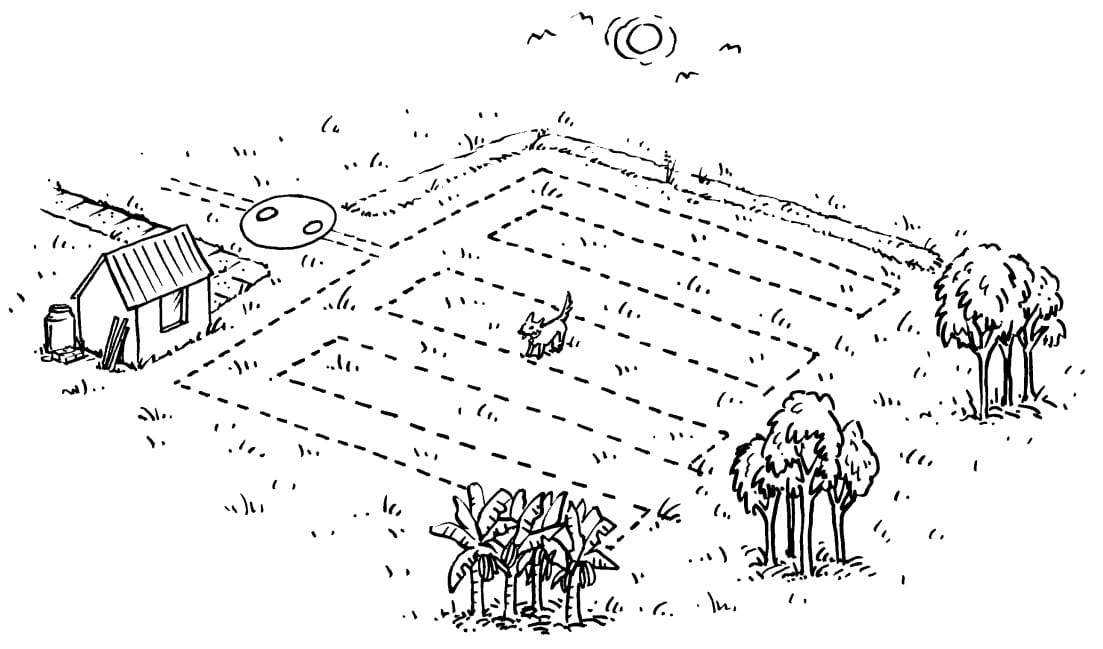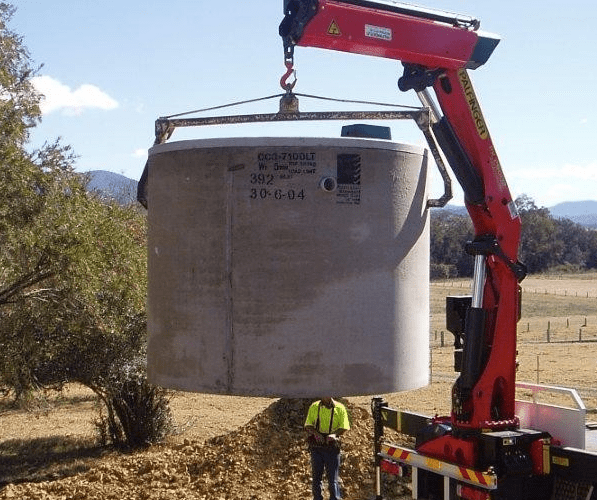There are many reasons to plant on your leach field.
Plants can help your septic leach field function optimally by removing excess moisture and nutrients from the soil. Additionally, plant cover is essential to reduce soil erosion. At a minimum, the leach field should be turfed to provide these important benefits. Read our planting on Septic Drain Field advice below!
The tricky part, certain trees and shrubs can cause damage from their aggressive roots. In this article, you will learn which plants are the best and worst to grow over a septic system and drain field.
Septic Safe Plants
Planting on septic drain fields and around your septic system and leach field is not only permissible but advisable. Plants will prevent erosion and suck up some of the excess moisture from the drain field.
At the very least, grow a Tall Fescue grass or Kentucky Bluegrass, Tall Fescue and Kentucky Bluegrass are often mixed together and can both handle high water levels.
GRASSES
Botanical Name
Carex spp
Juncea
Lomandra
Microlaena stipoides
Oplismenus imbecillis
Poa lab
Stipa spp.
Plant Size
Small grass/ground cover
Small grass/ground cover
Small grass/ground cover
Small grass/ground cover
Small grass/ground cover
Small grass/ground cover
Small grass/ground cover
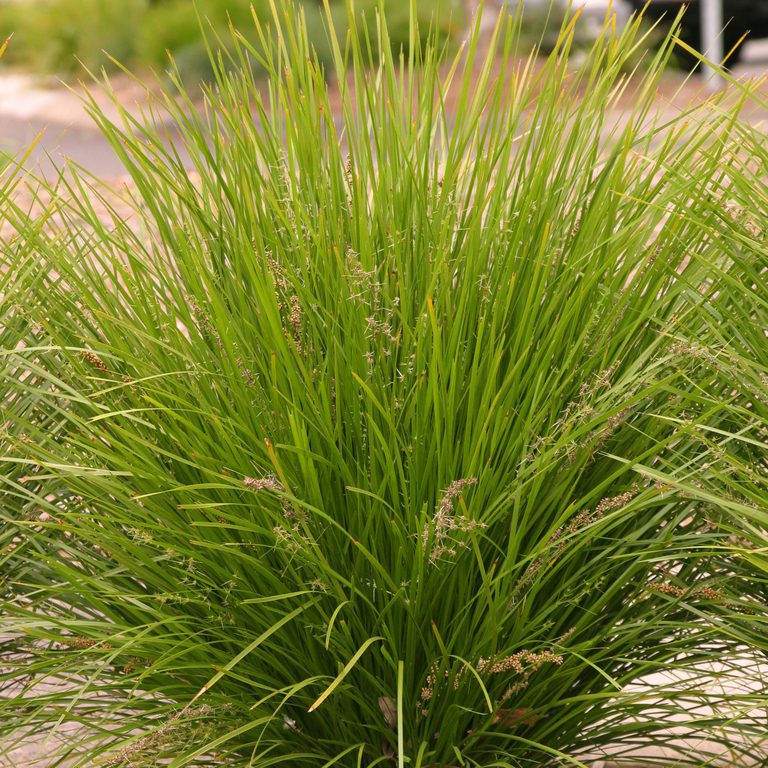
Image: Lomandra Grass, courtesy of Flower Power Garden Centres
Plants Avoid Near Your Septic System
FAST-GROWING SHRUBS
Typically you should avoid planting on septic drain fields large, fast-growing trees. In addition, water-hungry shrubs and trees that aggressively seek out water sources can be some of the worst plants to plant as they will put your pipes in your septic tank drain field at risk.
LARGE TREES
If you plant a tree that can grow up to 5m, you can expect its roots to grow out to a distance of 5m from the tree’s base. The roots will always grow towards the water in your septic system and are strong enough to cause severe damage to your tank and pipes.
VEGE PATCHES OR HERB GARDENS
Do not grow vegetables, fruit trees, herbs or anything you intend to eat within 5m of your wastewater system.
The plants that are being watered by your irrigation system must tolerate high amounts of water and nutrients. Seek advice from a horticulturalist or landscape gardener when choosing plants for your irrigation area.
GROUND COVER & CLIMBERS
Botanical Name
Hibbertia procumbens
Hibbertia scandens
Hibbertia stellaris
Kennedia rubicunda
Scaevola albida
Scaevola ramosissima
Veronica plebeia
Viola hederacea
Plant Size
Climbing and spreading ground cover
Climbing and spreading ground cover
Climbing and spreading ground cover
Climbing and spreading ground cover
Climbing and spreading ground cover
Climbing and spreading ground cover
Climbing and spreading ground cover
Climbing and spreading ground cover
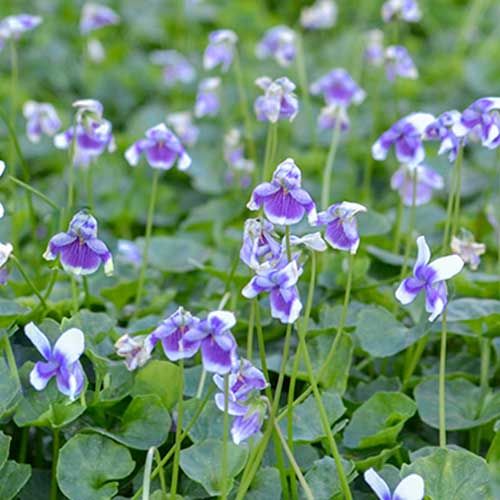
Image: Viola Hederacea, courtesy of Australian Plants Online
SEDGES, GRASSES & SMALL PLANTS
Botanical Name
Baumea acuta
Baumea articulata
Baumea juncea
Baumea nuda
Baumea rubiginosa
Baumea teretifolia
Brachyscome spp
Carex spp
Cotula
Crinum pedunculatum
Cyperus gymnocaulos
Dianella caerulea
Ferns
Gahnia spp
Juncus australis
Juncus spp
Lomandra spp
Patersonia fragilis
Patersonia glabrata
Patersonia occidentalis
Restio australis
Restio tetraphyllus
Sowerbaea juncea
Tetratheca juncea
Xyris operculata
Common Name
Sedge
Sedge
Sedge
Sedge
Sedge
Sedge
Sedge
Low plant
Sedge
Grass-like
Tall grass-like sedge
Sedge
Sedge
Grass-like
Sedge
Sedge
Grass-like
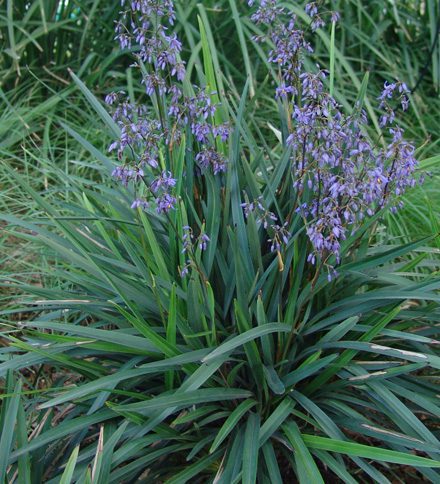
Image: Dianella Caerulea, courtesy of Hello Hello Plants & Garden Supplies
SHRUBS
Botanical Name
Bauera ruboides
Callistemon citrinus
Callistemon sieberi
Callistemon subulatus
Goodenia ovata
Kunzea capitata
Leptospermum flavescens
Leptospermum juniperinum
Leptospermum lanigerum
Leptospermum squarrosum
Melaleuca decussata
Melaleuca squamea
Melaleuca thymifolia
Pomaderris spp.
Plant Size
0.5-1.5 m
1 m
1-2 m
1-2 m
1-1.5 m
1-2 m
< 2 m
1 m
1-2 m
< 2 m
1-2 m
1-2 m
Approx. 2 m
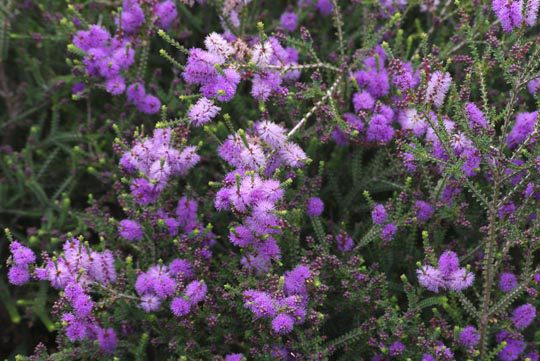
Image: Melaleuca Decussata, courtesy of Wildtech Plants
TREES
Botanical Name
Abelia grandiflora
Acacia elongata
Acacia floribunda
Agonis flexuosa
Allocasuarina diminuta
Allocasuarina paludosa
Angophora floribunda
Angophora subvelutina
Baeckea linifolia
Baeckea virgata
Callicoma serratifolia
Callistemon linearis
Callistemon pallidus
Callistemon paludosus
Callistemon salignus
Callistemon viminalis
Casuarina cunninghamiana
Casuarina glauca
Elaeocarpus reticulatis
Eucalyptus amplifolia
Eucalyptus botryoides (coastal areas)
Eucalyptus camaldulensis (west of
ranges)
Eucalyptus cosmophylla
Eucalyptus crenulata
Eucalyptus deanei
Eucalyptus elata
Eucalyptus globulus (coastal)
Eucalyptus grandis
Eucalyptus longofolia
Eucalyptus pilularis
Eucalyptus punctata
Eucalyptus robusta
Eucalyptus saligna (coastal)
Eucalyptus tereticornis
Eucalyptus viminalis (ranges)
Eugenia smithii
Hymenosporum flavuum
Melaleuca armillaris
Melaleuca ericifolia
Melaleuca halmaturorum
Melaleuca hypericifolia
Melaleuca linariifolia
Melaleuca nesophila
Melaleuca quinquenervia
Melaleuca squarrosa
Melaleuca stypheloides
Melia azedarach
Pittosporum spp
Pultenaea daphnoides
Syzgium paniculatum
Tristania laurina
Viminaria juncea
Plant Size
2-3 m
> 2 m
2-4 m
5-6 m
1.5 m
0.5-2 m
Large tree
Large tree
< 4m
< 4m
< 4m
> 2 m
> 2 m
> 2 m
3-6 m
3-6 m
10-20 m
6-12 m
Large tree
Large tree
Large tree
15-20 m
5-6 m
Large tree
Large tree
Large tree
Large tree
10-20 m
20 m
Large tree
Large tree
Large tree
Large tree
Large tree
Large tree
Large tree
3-6 m
3-4 m
6 m
4 m
2-3 m
< 10 m
2-4 m
5-7 m
6 m
6-15 m
15-20 m
2-3 m
8-10 m
3-5 m
2-3 m
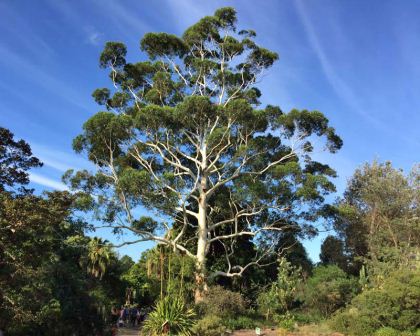
Image: Eucalyptus Grandis, courtesy of GardensOnline
Garden Master has been an industry leader for over 30 years, manufacturing, supplying and servicing quality wastewater treatment systems and septic tanks for thousands of clients across Australia.
Don’t hesitate to call us on 1800 632 582 with any questions!
Resources:
NSW Department of Local Government. 2000. The Easy Septic Guide. Developed by Social Change Media for the New South Wales Department of Local Government.

